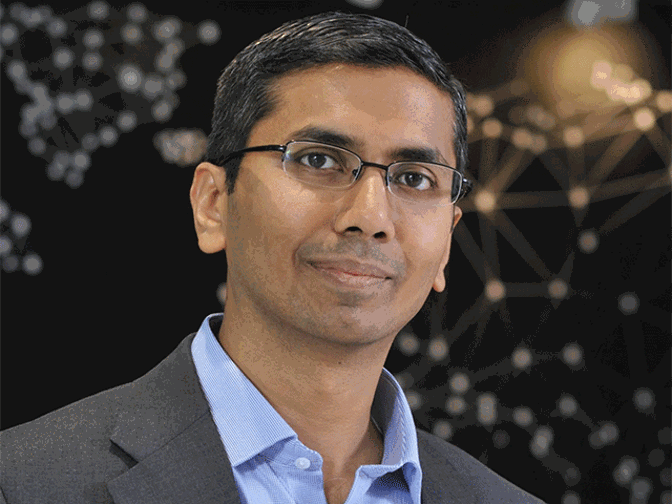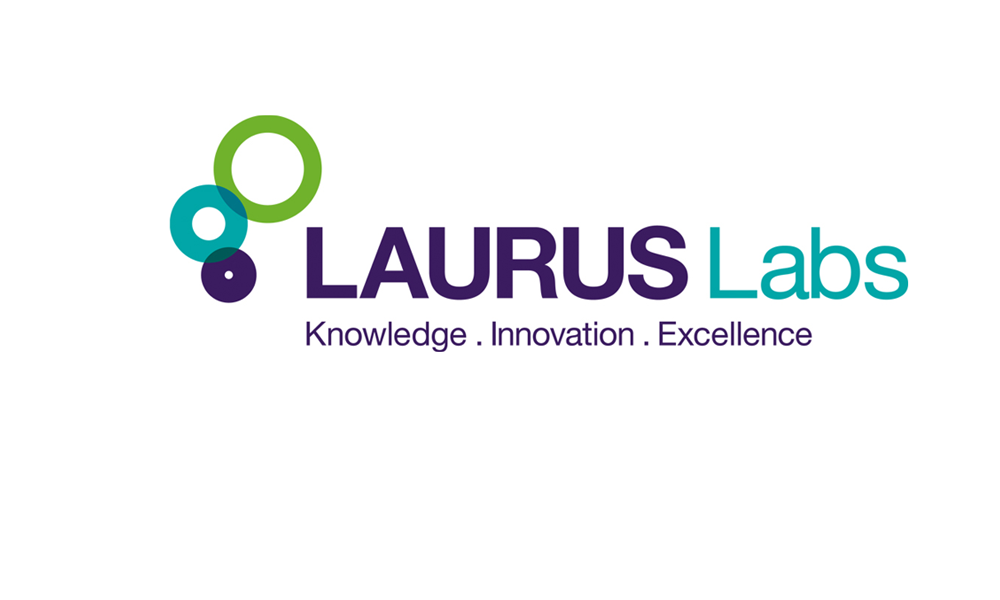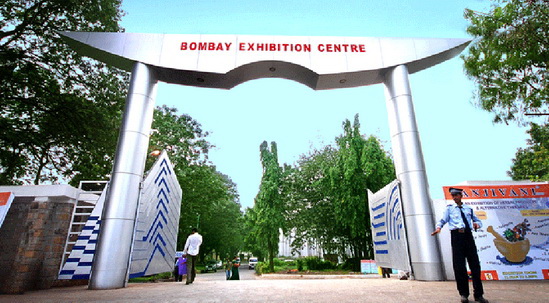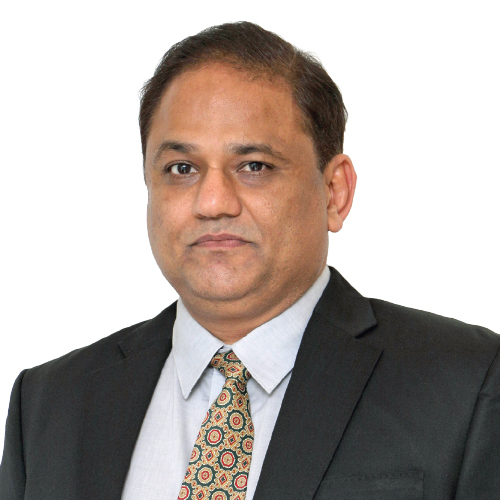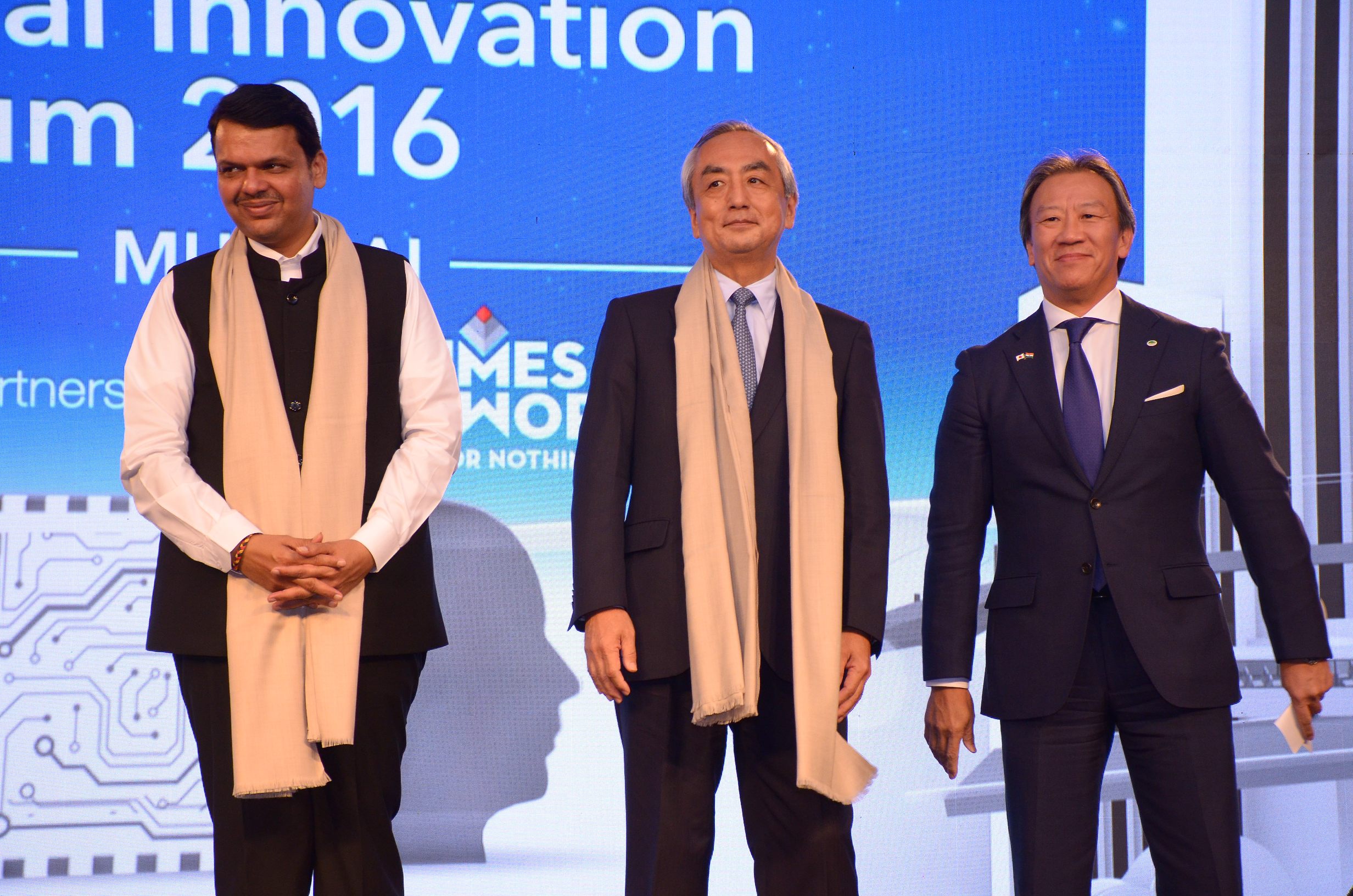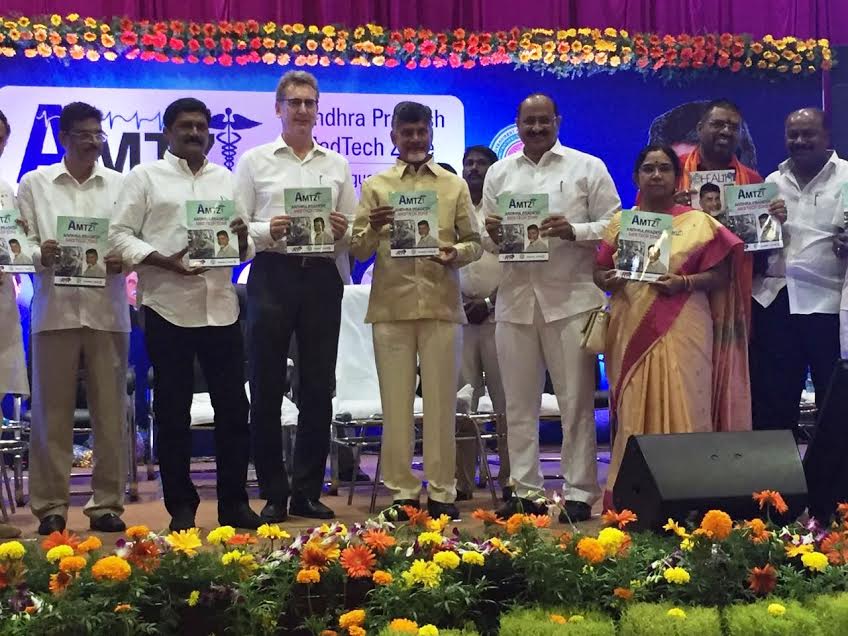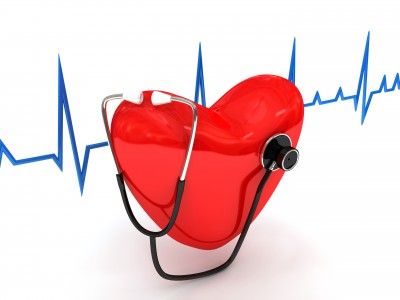

Shally Makin discussesabout new tools and technologies which are set to change the healthcare landscape

The trend started with e-tickets,graduating to paying bills andmanaging bank accounts, andfinally fashion.
Today healthcare reignson the Internet with a plethora of informationavailable. You may procrastinateover making that trip to your doctor, buta service thats available on your phoneor tablet on the touch of a button willkeep you gripped even while youre onthe-go.
Intuitive features are especiallyprogrammed to follow the same seriesof symptom checking and analysing thathealth experts follow to understand what the problem is. Each person has uniquehealth needs, but once the problem isoutlined, the cure is customised and relayedusing interactive online tools likesimulators and feedback forms that providea personalised experience.

The Internet is here to transform theway healthcare is delivered to the masses.Technology has had a significant impactin the healthcare arena. Now, withthe rapid proliferation of the Internet,technology may actually be serving toalter the traditional relationship betweendoctors and their patients.
As more andmore people use the Internet to gatherinformation, many are relying on thisdeveloping technology to address theirhealth needs and questions as well.
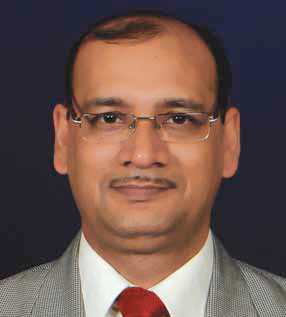 |
Shyam Znwar MD, InQvent Holding Pvt LtdAlacurity providesnurses, physiotherapists,translators, medicalequipments, serviceapartments, corporatewellness plans, preventivehealth check-uppackages and follow-upconsultations, healthconcierge services andonline medical record forquick retri |
Online healthcare is certainly themost imminent revolutionary reformwaiting to happen in medical world.
Formany in medicine, thats anunconventionalperspective. Yet, convention canthold back the Internet from masses whoseek not only reputable health information,but also a dynamic user experienceand Web-based dialogue about their respectiveconditions and questions, saysDr Sanjay Gupta, Consultant, MoolchandOrthopaedics Hospital, New Delhi.
The shortage of physicians across arange of medical specialities is a problemthats expected to worsen. Retailclinics and urgent care centres grewfrom the difficulty many people encounterin getting appointments with primarycare doctors.
Tools
A new online tool takes the guesswork outof developing individualised catch-up immunisationschedules by allowing parentsand healthcare providers to easily createa schedule that ensures missed vaccinesand future vaccines are administeredaccording to approved guidelines. Governmentplans to increase online accessto medical records and e-consultationswhich will push up demands on cliniciansand increase costs.
Online healthcareis a tool that gives patients the ability tofollow-ups with their doctor without travellingor waiting in clinics. This enablesdoctors with a platform to provide betterdisease management support for theirpatients, says Anita Shet, Chief utiveOfficer , Pink Whale HealthcareInstead of relying on a directory of physiciansto grab the attention of busy patientslooking for a cardiac surgeon, the onlinehealthcare offers video spots of doctorsexplaining various procedures.
Expensivemedical treatment in metros and inaccessibilityin small towns are paving the wayfor several start-ups such as Alacurity,Healthkart and HealthCare Magic to fill inthe existing gaps in the healthcare system.They focus on preventive healthcare servicessuch as post-treatment check-up,follow-up visits and better referrals.
Alacurity, promoted by seed fund In-Qvent Holding, offers patient assistance,medical equipment and preventive care.Besides, it provides nurses, physiotherapistsand medical products includingrespiratory inhalers, drug devices andmedicines to patients at prices rangingfrom `10,000-2 lakh — which is 25 percent cheaper than the treatment at mosthospitals. They are offering these servicesthrough prequalified service providers.Shyam Znwar, MD, InQvent HoldingPvt Ltd says, So far pre and post hospitalisationfacilities are not organised.There are good doctors, equipmentsand hospitals. However when somebodycomes to India, they need many morethings than just hospitals. They need tostay over for long time. They need properaccommodation, food, translator, nurses,physiotherapist, need to buy or rentequipments. It does not only cost a lot ofmoney, but also requires lot of efforts.
Sumit Chauhan, Vice President &General Manager, Embedded & TelecomBusiness Unit, Symphony TelecaCorp believes, Proper treatmentof patients suffering from diseases is acritical need for every society. Emergingonline and mHealth services are a keyopportunity to improve the treatment ofpatients and also realise better cost efficienciesin the healthcare system.
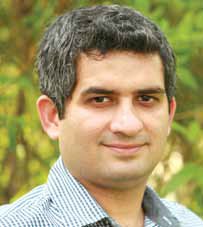 |
Prashant Tandon CEO, HealthkartConsumerawareness is risingand people aregetting more involvedin their healthcare.Consumers have access to transparentinformation toaddress concerns ofauthenticity, efficacy,price, etc. |
Bangalore-based Healthcaremagic.com offers specialised packages relatedto blood pressure, pregnancy,diabetes, cancer and other ailments. Itconnects patients with registered doctorsand specialists online, thus savingtime from frequent hospital visits.Started four years ago, it started gainingmomentum in the last couple of years,given the boom in online ventures.
HealthKart sells over 13,000 fitness,health and personal care products.The products are categorised undereight parts – Nutrition, Sports & Fitness,Diabetes, Home Devices, Eye, PersonalCare, Beauty and Parenting. Additionally,HealthKart also sells varioushealthcare services, such as preventivehealth packages, diagnostic tests,and gym memberships, etc, to provideone-stop shop for all consumer healthcareneeds. Prashant Tandon, CEO,HealthKart mentions, The expenditureand focus on healthcare is increasing both public and private. We intend to bea shaping force through providing qualityauthentic healthcare products, usefulinformation to make this space moreunderstandable and transparent to theconsumer and leveraging technologyto ensure proper healthcare can be accessedfrom every part of the country.
Pros and cons
The surge of health information on theInternet has one of two effects on thedoctor-patient relationship. For physicianswho are comfortable with the Internetand with patients declaring theirautonomy, and for patients who haveexplored sites with trustworthy information,the patient-physician relationship isenhanced and improved.
But for thosepatients who access flawed informationand then bring it to their physicians, andthose physicians who prefer to practicein a more paternalistic mode or who arenot up-to-date with the Internet, therewill be harmful consequences on the relationship.Dr Sanjay Gupta adds, Forpatients as well as doctors, it opensup options from a vast selection ofgeographical boundaries and across aspectrum of available expertise. Nevertheless,one has to be cautious asonline healthcare can be a very usefulcomplimentary tool but not a substitutefor traditional medicine.
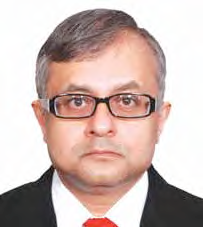 |
Dr S B Bhattacharyya Head- Healthcare Informatics, TCSRight from seekinginformation forproblems to beingreminded regardingnext steps, includingtaking medications,online care is allset to transformhealthcare |
Consumer advocates argue that thedisclosure of performance data willhelp consumers to choose high-qualityproviders. While there is a plethora ofhealth-related information on the Internet,currently there is no way to authenticateit. Indeed, there is an immenseamount of misinformation available onthe web. This unfortunate reality createssituations in which physicians may haveto un-teach what their patients havelearned. Dr S B Bhattacharya, Head-Healthcare Informatics, TCS highlightedthat, Privacy and secrecy issues,requirements of high levels of systemavailability and efficient data exchangeusing well accepted standards continueto be areas of concern.
Sona R, Marketing utive, TrivitronHealthcare shares, The sheer convenienceof a specialist being just a phonecall away can drive users to an onlinemodel. Online medical services offerpatients a unique opportunity to ratehospitals, doctors and compare theoutcome of treatments. It offers a transparencythat is beneficial to the patient.She adds, that the traditional system ofmeeting the doctor face to face and gettingourselves tested is the most convenientand accurate diagnosis we canever get, though being a click away fromgetting diagnosed is easier.
There have been many scenarioswhere individuals hailing from an urbanbackground find it a very time-consumingand energy grueling activity to first availa doctors appointment and then drivedown to the hospital for even a medicalnecessity that is as small as a generalmedical check-up. Extending this point,the scale of time and energy that is wastedfor other ailments that are a little moreserious than general checkups would beeven higher. There also lives a certain setof people who are so busy in their dailywork routine, that they cant afford to taketime off and visit doctors or hospitals locatedfar from their homes or offices.
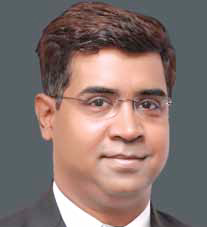 |
Amit Mohan Director Marketing, Zimmer IndiaOnline healthcare is anefficient, cost effective,collaborative approachoffering seamlessintegration. The patientsneed to learn about illnessor ordering prescriptionmedications.This isdefinitely not a 100 percentreplacement for theoffice visit to a doctor forconsultation |
Patients who use the Internet are becomingmore educated about their medicaldecisions. They no longer go to theirphysicians for medical information, butrather to seek medical advice to confirmtheir own suspicions. The availability ofinformation on the Internet is certainly awonderful thing to have at ones fingertips.However, if the patient-physician relationshipis to maintain its integrity, usingsuch online information must be partof a cooperative effort. Internet medicineis not a substitute for hands-on, face-tofacecare between a real live doctor anda real live patient.
Amit Bansal, Director, HepingDoc.insays, With corporatisation of healthcare,absence of stronger regulation to reducemalpractices, and without clear visibilityof the medical diagnosis and treatments,there is an increasing trust deficiton healthcare providers. This has led toa growing traction for a service that improvesvisibility and provides structure tothe unstructured healthcare.
There is an abundance of fraudulentwebsites. The only way you can tell anoriginal from a fake one is by painstakingresearch and cross-questioning theexperts before they recommend anytreatment. Online healthcare wont workwell for injuries which require immediatecare and also may not make sense forpersistent problems.
Range of services
People who are tired of queuing up andvictim of inaccurate advices, logging ontomedical health services for consultations,appointment scheduling, recommendationson healthcare providers and treatmentsserve the purpose. From childcareto fitness, the online healthcare modelis offering patients reliable and multiplesolutions at the first click. Online medicalservices offer patients a unique opportu-nity to rate hospitals, doctors and comparethe outcome of treatments.
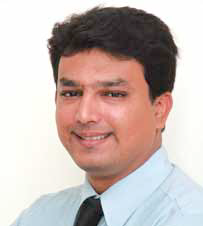 |
Jayadeep Reddy CEO and Founder, eHealth Access Pvt LtdBy using technologyas an enabler andaccelerator, we areleveraging the massivepenetration of mobileand Internet usage withtechnology innovationsin connected devices andhelping doctors reachout to more patients |
Most experts see online portals ascomplementary to traditional modes ofconsultation rather than a replacement.For practical reasons, health workers areoften unable to talk to home-based patientswith chronic conditions on a dailybasis; but they could keep an eye on anonline medical record that is automaticallyupdated whenever the patient measurestheir own blood pressure, checks theirweight, or takes their medication. Suchtechnology could help medical workersensure remote patients are healthy, anddetect any problems at an early stage beforethey become serious. People havesurrendered fully in front of Internet whichdelivers massive information about everythingfrom minor to major. Systematisationand expansion of healthcare sectorare few reasons for enlargement of onlinehealthcare. says Dr Vasvi Mathur, DentalSurgeon, Private Practitioner.
While no one counts the number ofinteractive web projects run by those inthe healthcare field, the figure may be inhundreds. The array of content includeseducation tools, information kiosks, videosand virtual renderings of healthcarefacilities. Dr M P Sharma, HOD, InternalMedicine & Gastroentrology, RocklandHospital talks about the issue related toself medication. He says, Self medicationcan prove to be highly fatal to oneshealth. It might lead to complications like:allergy, bleeding, etc. WHO suggests thatwhile providing information online the emphasisshould be on prevention of the diseaserather than on curative medication
 |
Sumit Chauhan VP & GM, Embedded & Telecom Business Unit, Symphony Teleca CorpUbiquitousconnectivity enabledthe remote interactionbetween doctors andpatients and modernmHealth solutionseven facilitate remotemonitoring of criticalhealth parameters.Technology handlessensitive personal dataand requires properlyarchitected systems toassure a trusted patient/doctor relationship |
The Second Life-based Ann MyersMedical Center in UK is run by real-lifenurses and physicians and demonstrateshow women can perform theirown breast exams.
It also allows a selfselectedcomputer character to receivea virtual mammogram in order to familiarisepatients with the procedure.
As with anything in social media, theusers experience is what they make it.But patients can benefit from such contentin very specific ways. A social-networkingwebsite functions as a supportgroup, users share intimate details oftheir diagnosis and treatment, includinginformation about specific symptomsand medications.
Perception
As online applications become more widespread,healthcare delivery systems willneed to develop methodologies that effectivelyintegrate health information technologieswith in-person care. Its a massiverevolution. It altogether shifts what goeson when a patient comes in with pagesof downloaded stuff and half the time thedoctor looking at it has never seen it before.Theres a whole new set of emotionspresent. Indeed, by providing access tomedical information, medical advice, andonline support groups, the Internet is makingit possible for patients to assume muchgreater responsibility for their healthcare.
It is conceivable that cyber doctors willone day provide detailed assessments toInternet users who grant them access totheir personal medical records. It is alsobelieved that cyber doctors could actuallybe brought into the treatment loop andused as a type of consultant to the usersattending physician.
Moreover, audio andvisual computer technology may moveInternet medicine closer to telemedicine,further merging the distinctions betweenuser and patient. Economists believethat the healthcare system of the futurewill be completely consumer-centric and consumer-focused, a revolution triggered in part by unfettered consumer access to information via the Internet.
Be a part of Elets Collaborative Initiatives. Join Us for Upcoming Events and explore business opportunities. Like us on Facebook , connect with us on LinkedIn and follow us on Twitter , Instagram.


